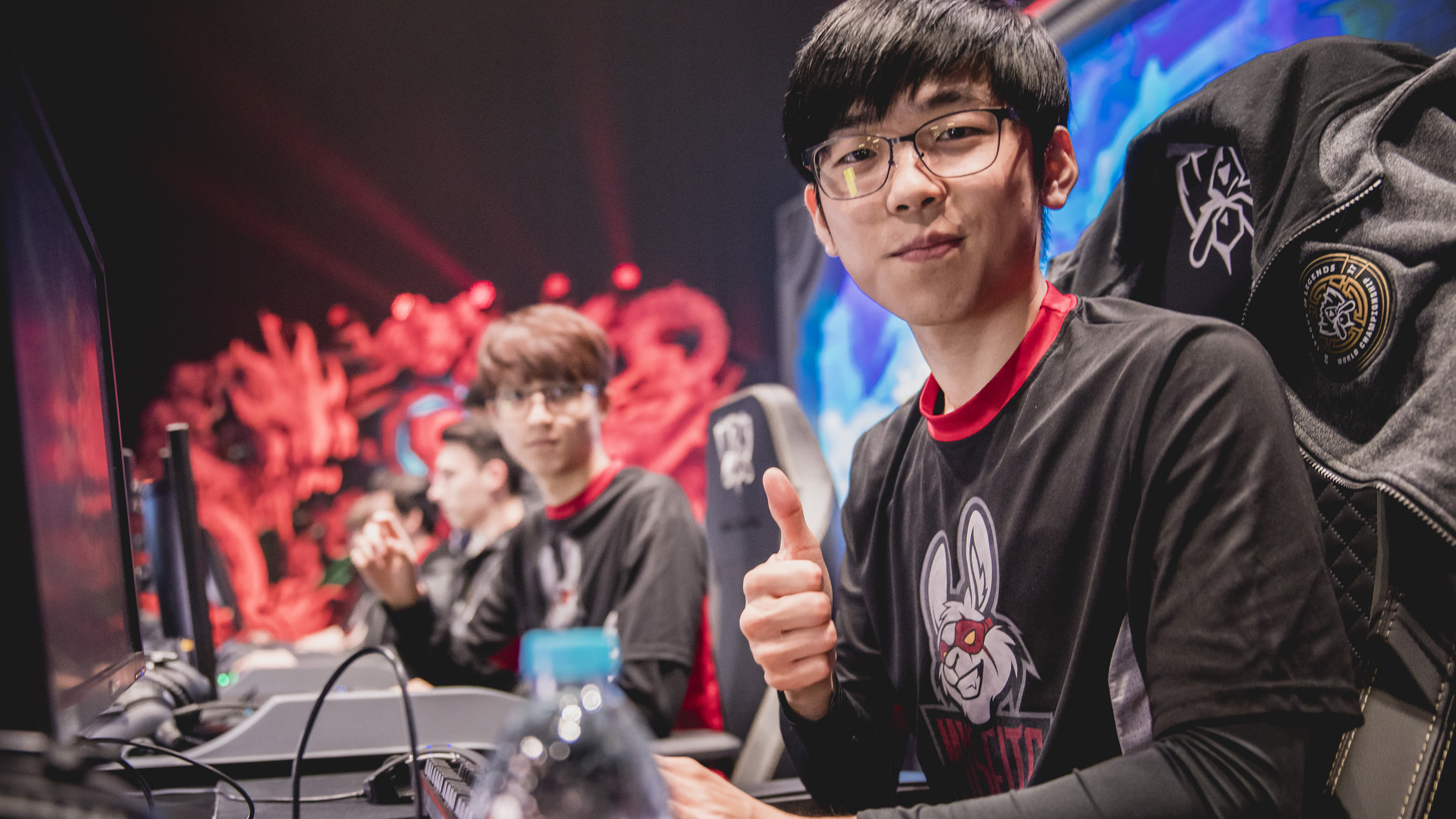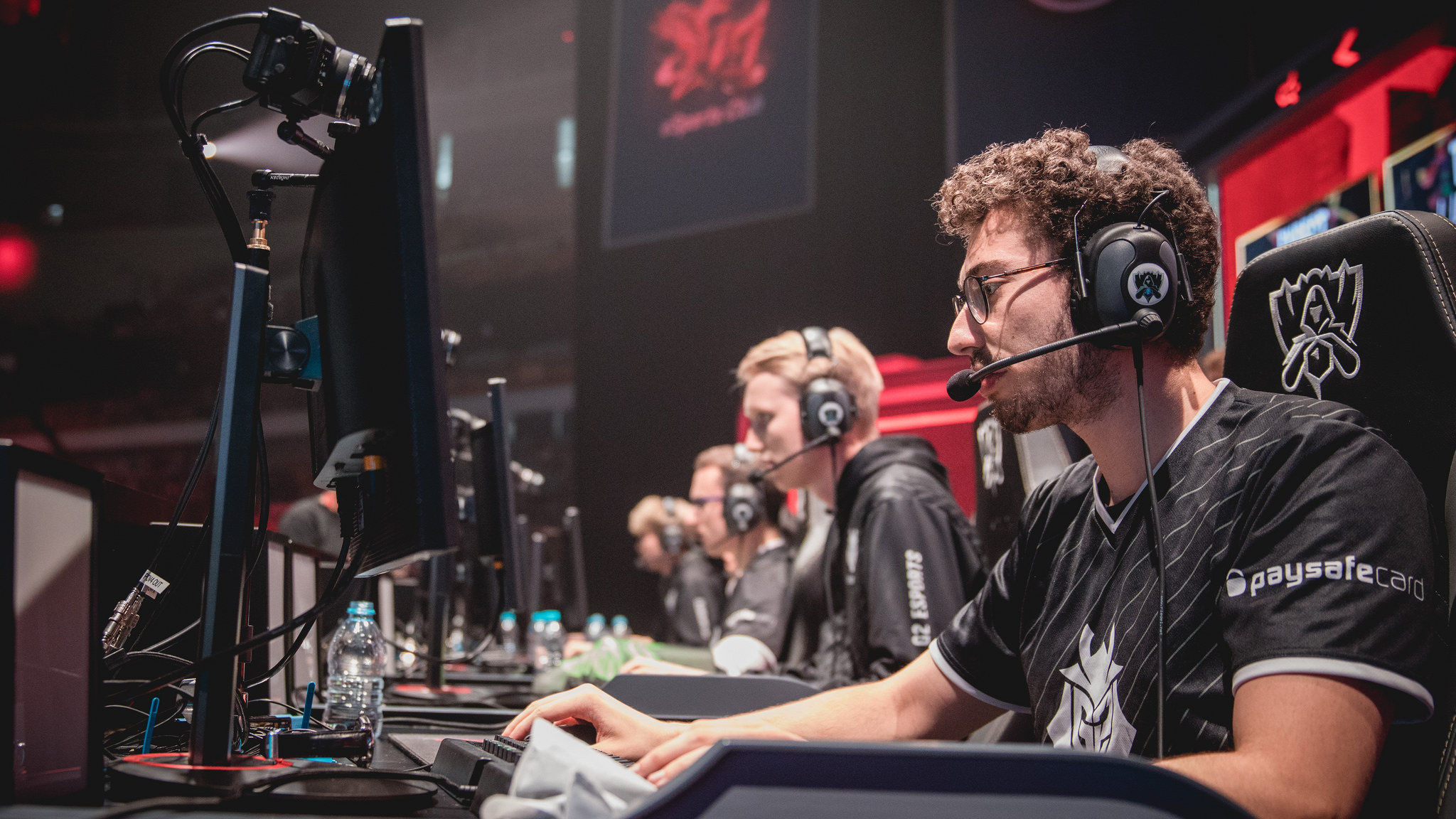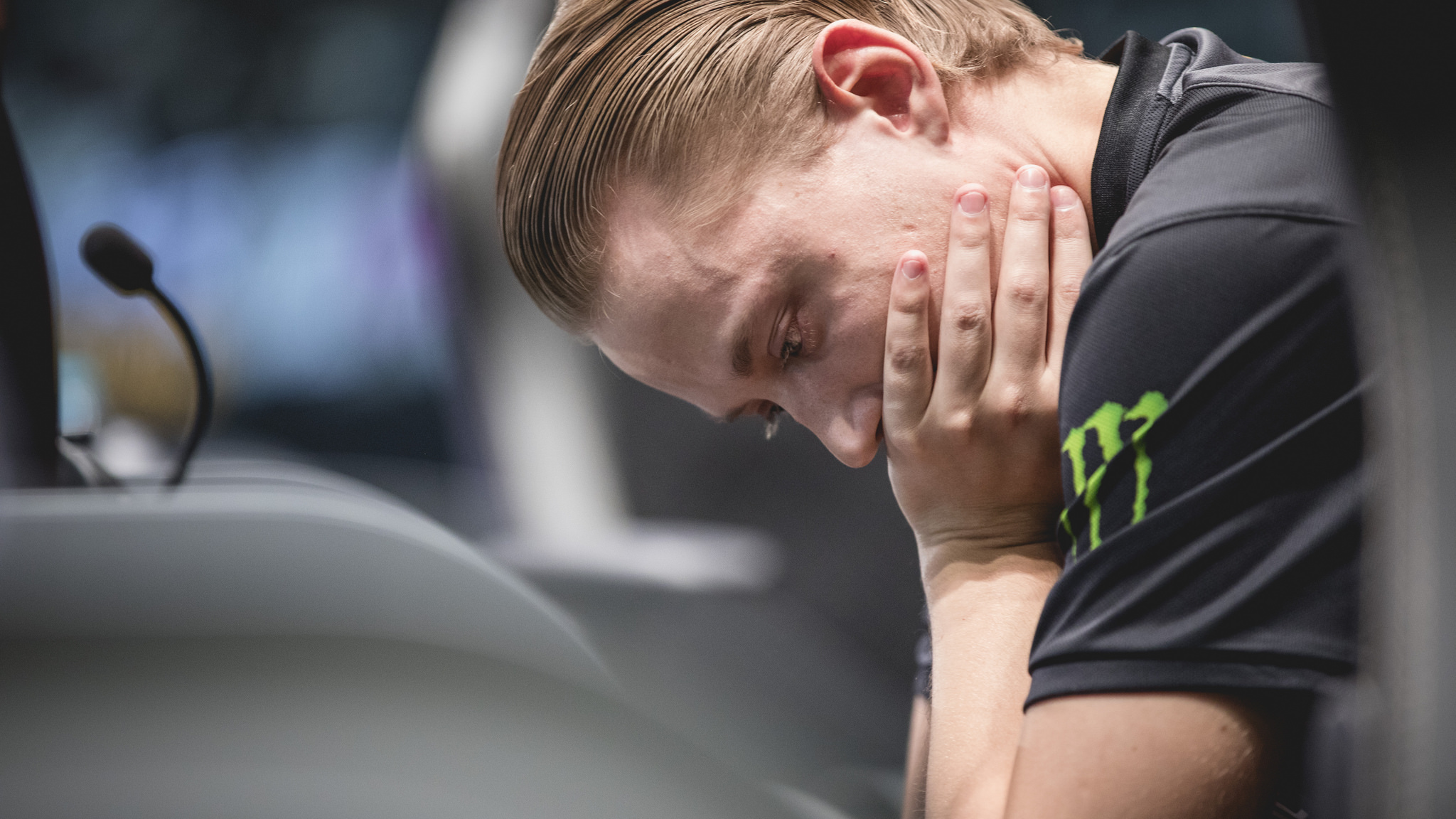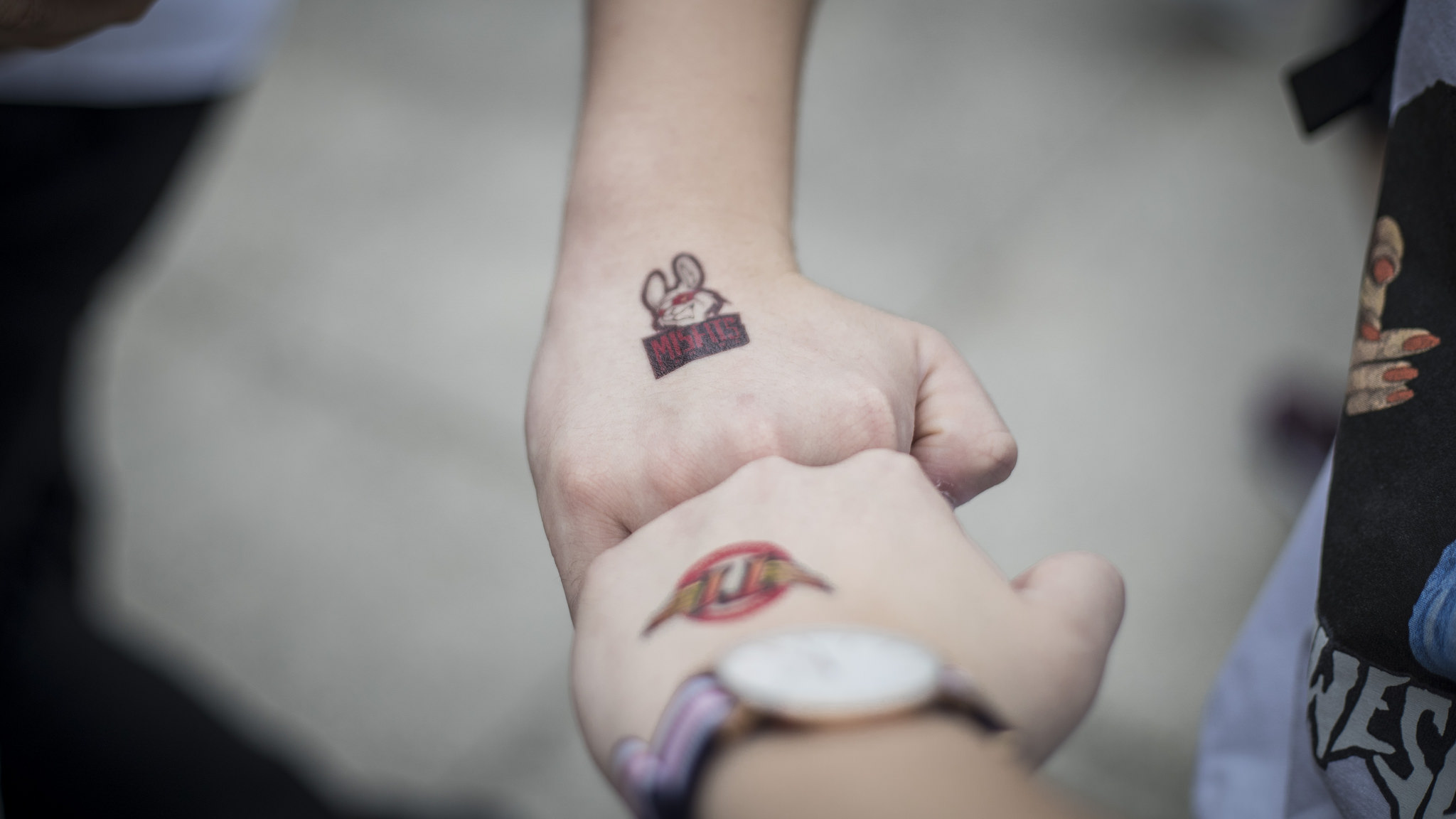How Europe defied expectations and broke hearts in the LoL World Championship
Europe put up a fight no one expected.

As we head into the finals of the League of Legends 2017 Worlds Championship, the casual viewer could be forgiven for thinking that this year is more of the same. Again we’re heading into a Korean v Korean final. In fact, the final will be a rematch of last year’s SK Telecom T1 against Samsung Galaxy.
But that doesn’t mean this Worlds has been a humdrum repeat of 2016. The joy has come from the journey, as well as the destination. We’re excited for the big match, which we’ll recap this weekend, but there’s one set of stories that has been an emotional seesaw, ranging from pride and joy to sorrow and regret. Europe entered Worlds as a set of underdogs, expected to get immediately knocked out to make room for North American and Korean teams in the Top 8. Instead, the region defied all expectations and made its mark on the 2017 World Championship in a truly astonishing way.

Setting the stage
As we headed into Worlds, Europe seemed to be beaten down.
As we headed into Worlds, Europe seemed to be beaten down. While the North American LCS had enjoyed a competitive summer split, Europe suffered lower viewership numbers and the perception that the region had descended into being an endless fiesta. It didn’t help that there were questions of whether the region had the finances or infrastructure to compete at the highest level. H2K had recently published an open letter to Riot and the League of Legends community, explaining why remaining in the EU LCS was a financially dangerous decision for them. This sentiment was echoed by the Unicorns of Love.
Europe had, just a couple of years ago, seemingly come close to closing the gap with Korea. Origen and Fnatic both represented EU on the global stage in 2015, and both teams managed to battle their way to the semi-finals at Worlds. At the Mid Season Invitational in the same year, Fnatic took SKT T1 to a nail bitingly close game five. All good things must come to an end, and both teams ended up losing that dominance. Fnatic’s Huni and Reignover left for North America, Origen fell apart, and G2 Esports rose up as the seemingly endless kings of the EU LCS.
This year, expectations weren’t sky high. The three qualifying teams were G2 Esports, Misfits, and Fnatic. Fnatic had struggled to recapture the magic of their previous years after so many roster swaps, and they seemed to be one of the weakest teams in Group B. Misfits had qualified for the EU LCS from Challenger at the beginning of the year, and going from Challenger to Worlds is a massive challenge for even the most mechanically talented players on the globe.
G2 Esports had struggled at international events before, and this was seen as their last chance. Continually claiming Europe is fantastic, and the Kings have enjoyed their local dominance, but they were also vocal about their desire to extend their success beyond the LCS and make an impact on the international stage.
When the dust cleared, two European teams had survived groups.
Keep up to date with the most important stories and the best deals, as picked by the PC Gamer team.

Heartbreakers
For years, G2 Esports were seen as the team that didn’t take international events seriously. The ‘two weeks of vacation’ meme haunted them, chasing them as they fell out of Worlds or floundered at MSI. G2 Esports had embraced the ‘bad boy’ branding; the organization seemed to legitimately enjoy being the team you loved to hate. Snatching the EU LCS trophy again and again seemed victory enough for them, at first.
Over time, that hubris faded away, and it became obvious how badly G2 wanted to enshrine themselves into League canon as legends. They came across as quieter, and more vulnerable. They went from appearing audacious and arrogant players to looking much younger and pure of intent. The League branding has always centered around the earnest hope of players to prove themselves on the international stage and seize glory for themselves—heck, just watch the video for Warriors—and G2 Esports started to encapsulate that hope better than any other team.
There was just one problem—G2 were sorted into Group C, along with eventual finalists Samsung Galaxy and Royal Never Give Up. Everything came down to one match: RNG against Turkish underdogs 1907 Fenerbahçe Esports. Fenerbahçe had yet to score a win and were unable to advance, but if they took out RNG, they could be the kingmakers that ensured that G2 Esports would advance.
They aimed at Uzi, RNG’s ADC. The Attack Damage Carry plays a long ranged character who builds up strength and then carries the team on his back with high scaling damage, and Uzi has arguably done the most work on behalf of his team out of anyone at Worlds. During the picks and bans phase, Fenerbahçe eliminated his ADC pool... and Uzi busted out his infamous Vayne pick and ended up taking out Fenerbahçe, and by extension, eliminating G2 as well.
Fnatic, on the other hand, managed to overcome the first seed of their region and make it into quarterfinals. They had suffered a terrible week one, but managed to turn things around in Week 2 and overcome Immortals to make it into the knockout stages. Rekkles commented that it would be a “miracle” if they could escape Group B... but they managed to make it happen.
Unfortunately, they immediately encountered Royal Never Give Up, who proceeded to take them out in a 3-1 quarterfinals bout. The series left Rekkles, the core of Fnatic, devastated. As RNG prepared to move onto the semi-finals and Fnatic took the stage for a final bow, Rekkles sat at his computer, staring at the floor. It was a heart wrenching moment to see the veteran ADC overcome expectations and come so far, only to inevitably fall short as the competition became fiercer.

Misfits, pride of Europe
After countless series where opponents backed off and gave SKT too much respect, carefully trying not to throw a game only to get choked out, the Misfits instead went too HAM.
It had been a devastating series for Fnatic, and G2 may never return to Europe with the same roster that won so many trophies, but there’s one incredibly bright spot for Europeans: Misfits. The Misfits, Europe’s second seed, had entered Worlds with the lowest expectations of all. It wasn’t personal, nor was it seen as unwarranted. A team often takes time to find their footing, and Challenger to Worlds is a difficult task. Even Origen, the last team to pull off a similar task, was full of veterans who knew the game like the back of their hands. Misfits, on the other hand, seemingly came out of nowhere... and then took SK Telecom T1, the reigning World Champions, to a five game series.
Not only did Misfits go toe to toe with SKT, they only lost due to a few moments of over-aggression. After countless series where opponents backed off and gave SKT too much respect, carefully trying not to throw a game only to get choked out, the Misfits instead went too HAM. They put up an absurdly good fight. The Misfits logo is a grinning, cocky rabbit. It seems absurd for a character who’d fit right in with Sam and Max to nearly dethrone SKT T1, but they almost managed it... in their first year as an organization.
After a year of the European scene looking weaker than ever, with big talent leaving for North America and viewership numbers dropping, it seemed almost obvious that Europe would put up a token effort before dropping out of Worlds. While some people acknowledged G2 stood a chance, it seemed obvious we’d see a mix of Korean, North American, and Chinese teams in the Knockout stages in Worlds. Instead, Europe rallied and took two teams to the quarterfinals. While some people joke that League must be scripted for maximum drama, it seems impossible that any writer could come up with something as unexpected, yet devastatingly easy to empathize with, as Europe’s ride through this year’s Worlds Championship.

